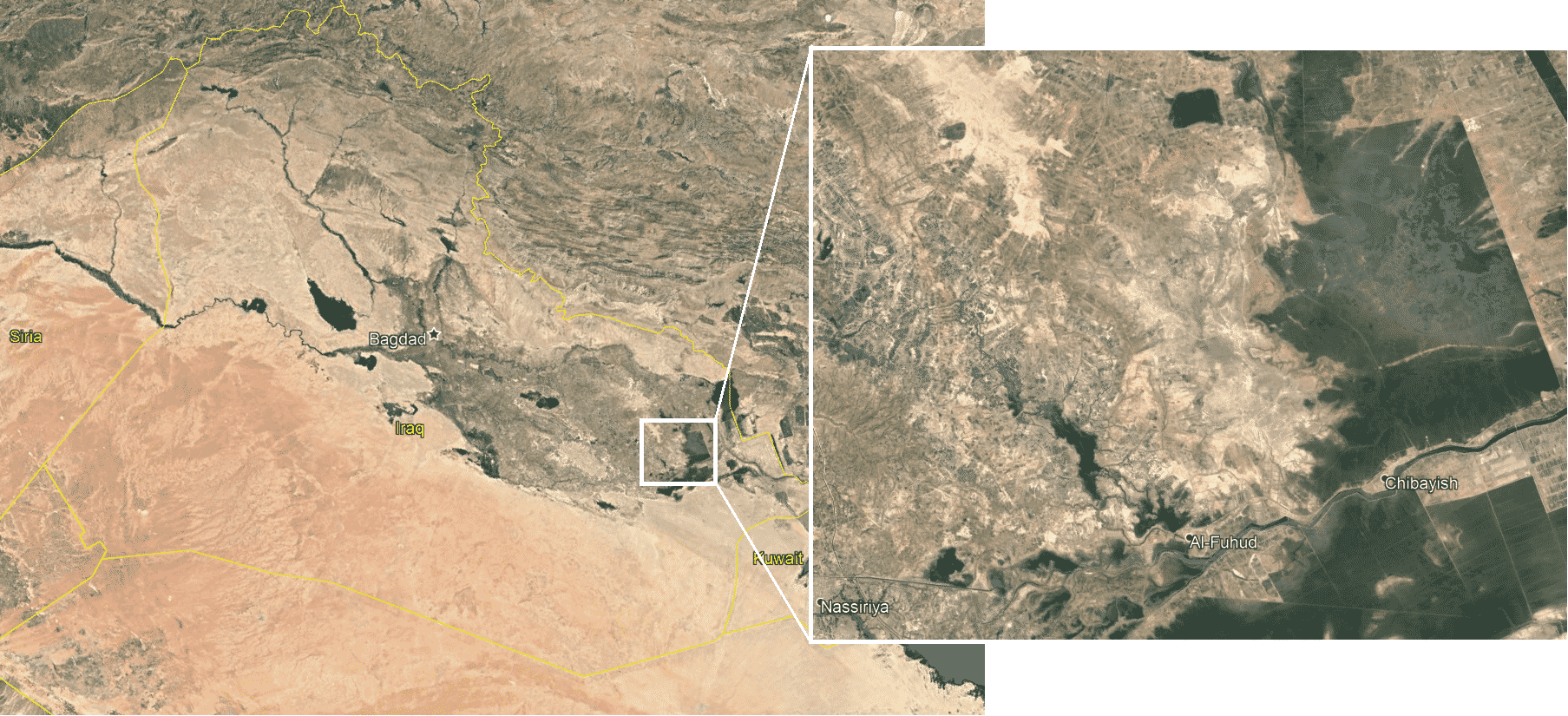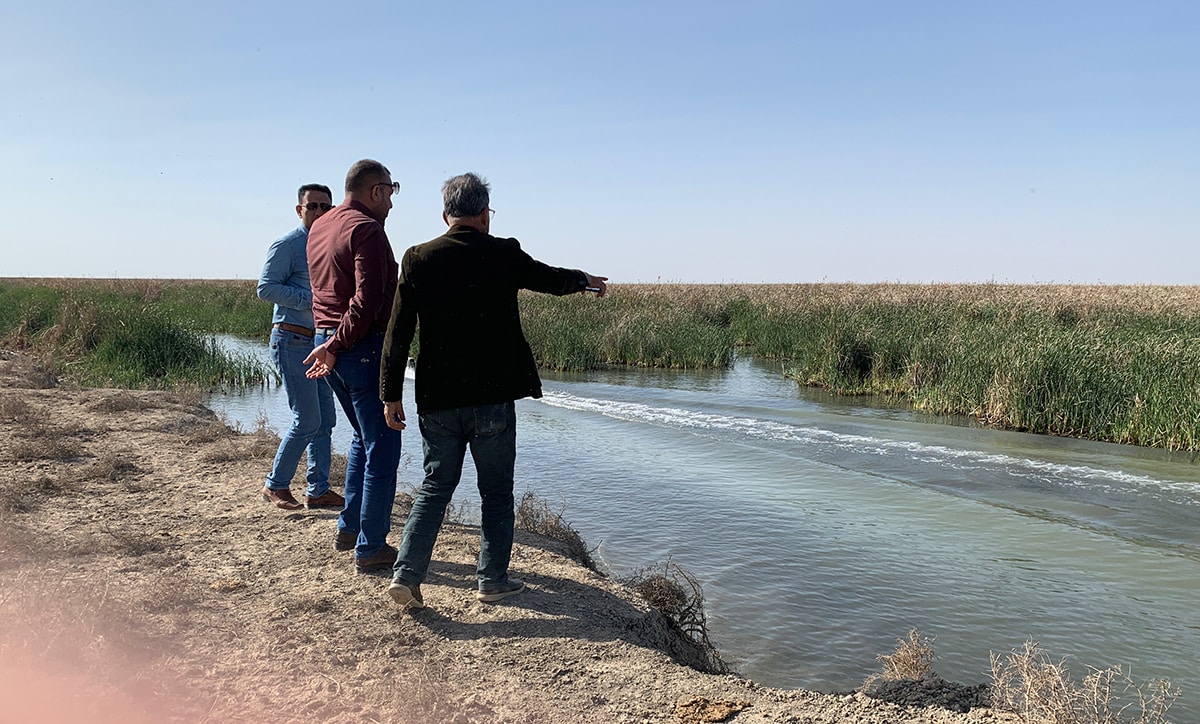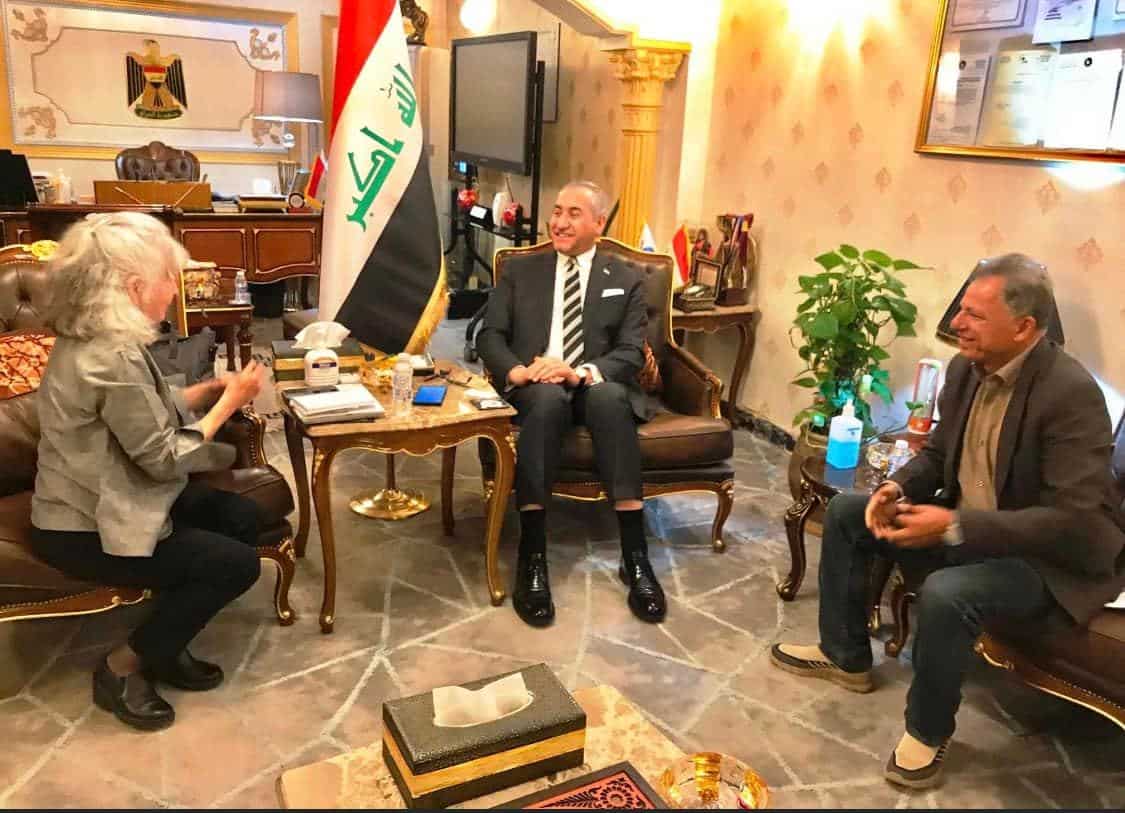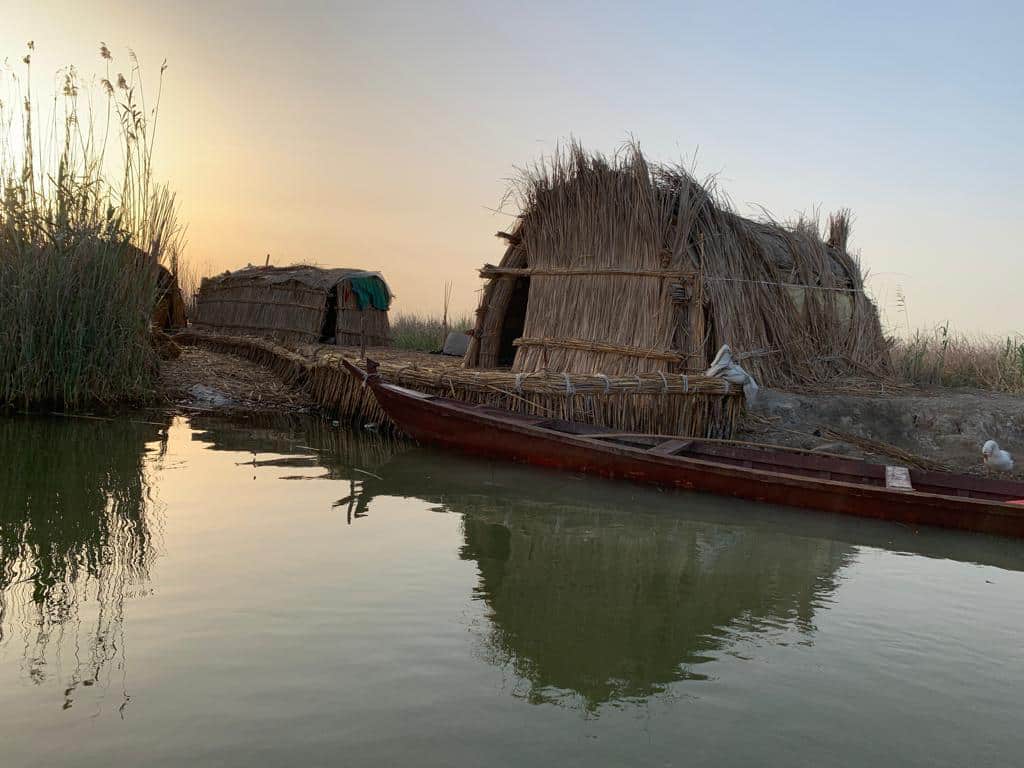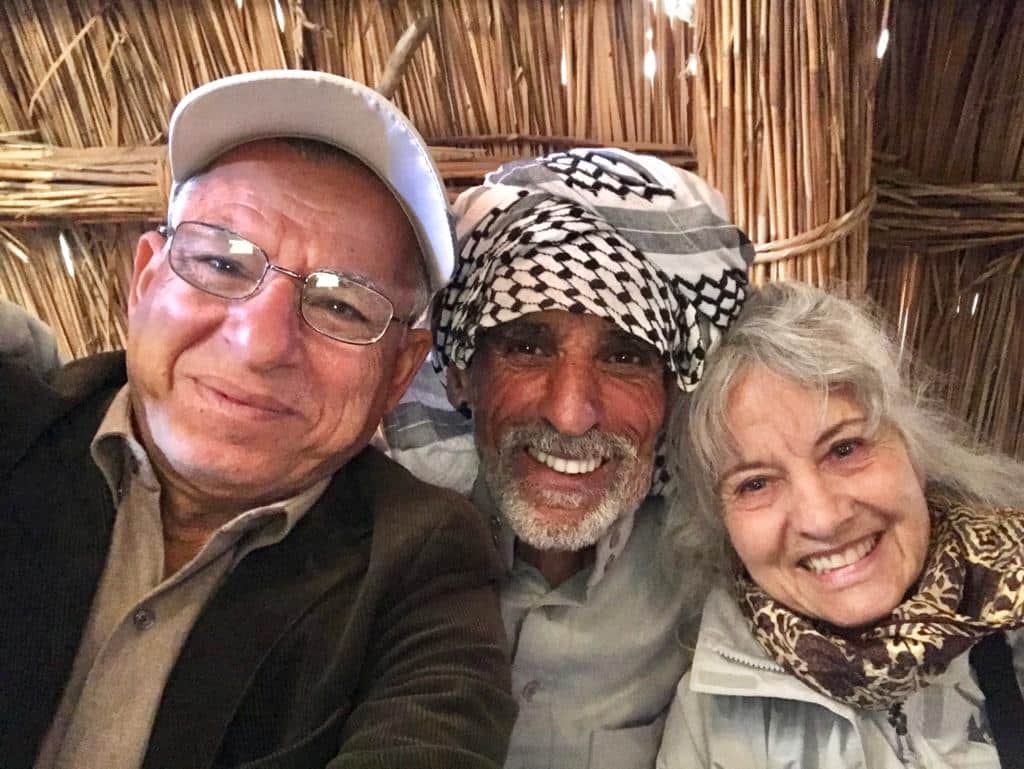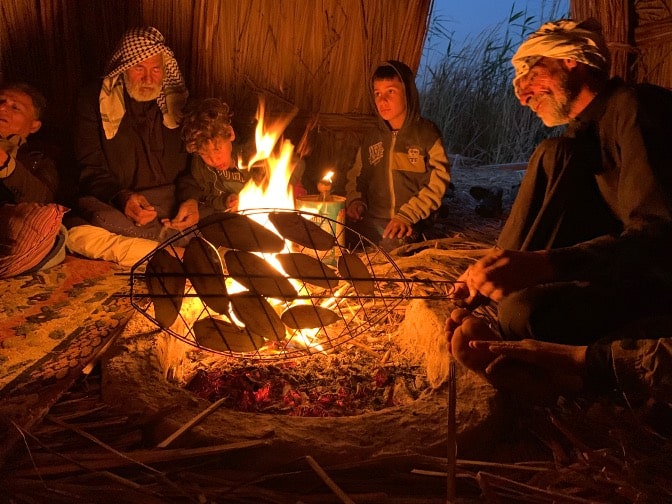Eden in Iraq:
Wastewater Garden & Cultural Heritage ProjectFundraising Campaign
The Eden in Iraq Wastewater Garden Team, shown below, are at the project site in El Chibaish standing on the pipe from the sewage switch plant which will fill our ecological wastewater treatment gardens growing thousands of marsh plants to naturally clean up the sewage. The city is currently discharging this untreated, raw sewage into the marshes, endangering human health and the environment.
Funding for the first phase of the project has come from the Iraqi Ministry of the Environment.
The Center for Restoration of Iraqi Marshes and Wetlands (CRIMW), within the Ministry of Water Resources, has provided a site and worked with our team to create engineering plans for the 2.65 hectare (6.5 acre) project
$2 million dollars are needed to complete both the wastewater treatment beds and adjoining cultural and education pavilion and visitors center. This demonstration of the technology will showcase an ecological solution to treating human sewage that can be applied throughout the Persian Gulf. .
For more information, contact Deborah Parrish Snyder, Institute of Ecotechnics.
All donations received are tax deductible.
Fiscal Sponsorship
Eden in Iraq is a water remediation project named as such since the project is located very near a possible site of the historic Garden of Eden. It will be a centre of cultural heritage and environmental awareness. The project includes the design and construction of an ecological wastewater treatment system in the town of El Chibaish, located in the historic marshes formed by the Tigris and Euphrates which join on the eastern edge.
A project of
Nature Iraq (NGO)
Institute of Ecotechnics (nonprofit in USA and UK)
Lead by
Environmental Artist Prof. Meridel Rubenstein
Environmental Engineers Dr. Mark Nelson and Dr. Davide Tocchetto, and
Jassim Al-Asadi, Engineer, Managing Director, Nature Iraq (NGO)
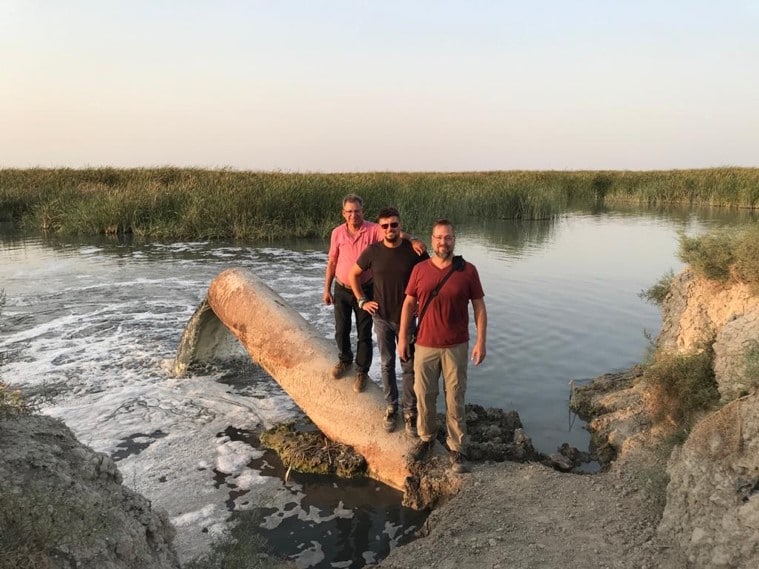
Since 2011, visionary artist and director of the project, Meridel Rubenstein has led a team with Dr. Mark Nelson, Dr. Davide Tochetto and the NGO, Nature Iraq, to design and build this public park showcasing the art and cultural heritage of the unique Marsh Arab culture in the heart of the Fertile Crescent while ecologically treating the wastewater. The project is welcomed and being supported by the Iraqi government as a model of ecological, low-cost and effective sewage treatment that can be applied throughout the country which is facing water shortages and almost total lack of effective solutions. Discharge of untreated human sewage is the major pollution in the region now, affecting the Marsh Arabs and the health of the legendary Mesopotamaian marshes and the Euphrates River, so important for human and wildlife support in this region. In addition, the site will bring environmental education as well as beauty to a magnificent ancient and distressed culture.
Want to learn more about this project?
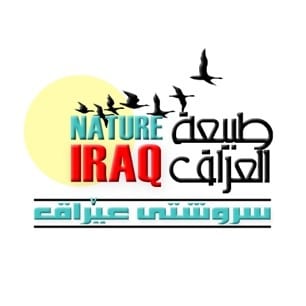
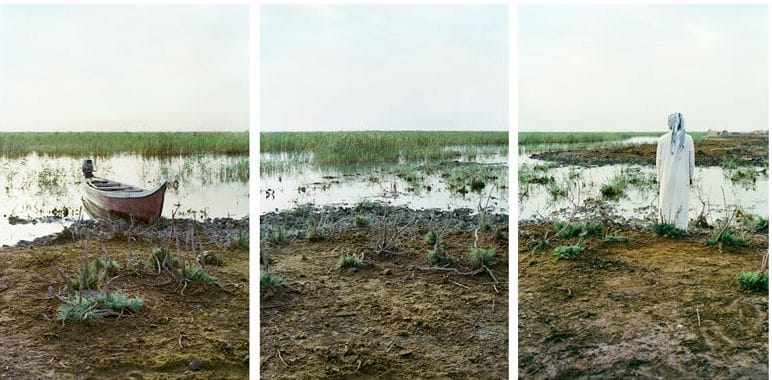
Benefits of the Project
-
Better Hygiene and environmental conditions in a UNESCO World Heritage Site
-
Water quality amelioration in the Southern part of the Marshland and in the lower Euphrates River
-
Carbon sink
-
Increase of local green landscape, Biodiversity and Habitat
-
Social point for inhabitants enjoying the gardens
-
Tourist attraction and resting point
-
Water reuse
-
This Nature-Based Solution can provide long lasting change to a fragile area, with clean water,
health, and adaption to climate change.
-
Safeguarding Wetlands like those of southern Iraq plays a crucial role in our global biosphere

